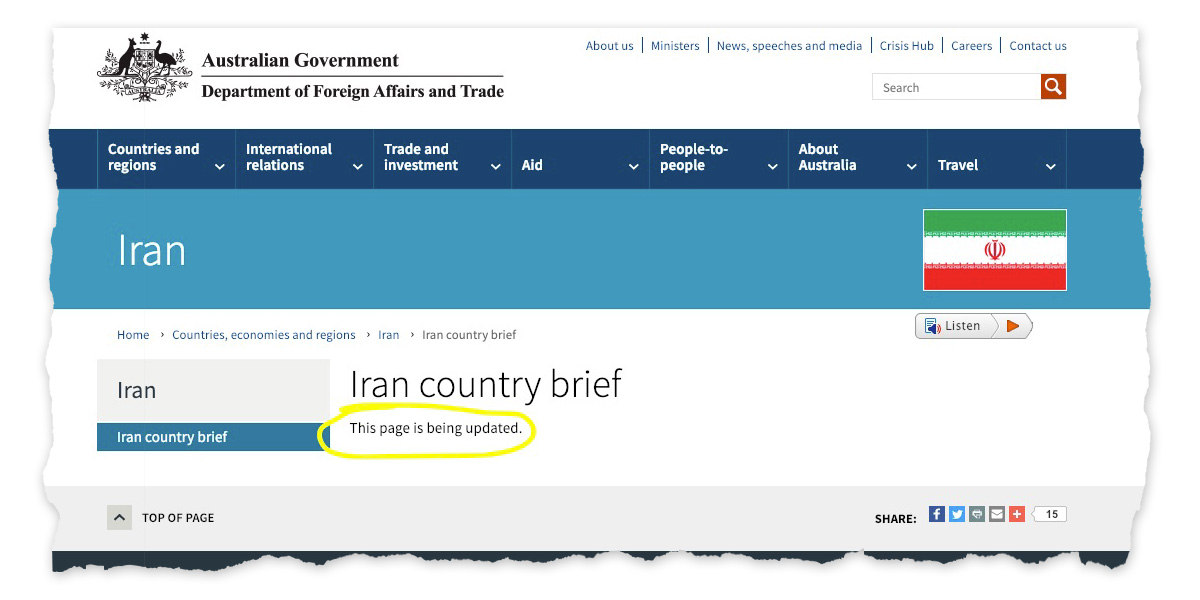If news reports are believed, Australia will on Saturday formally recognise Jerusalem as the Israeli capital while leaving its embassy to remain in Tel Aviv in an announcement to be made by Prime Minister Scott Morrison.
If other news reports are believed, such a shift will be against the advice of most government agencies, as well as at least some of the experienced experts assembled to offer a perspective.
Yet the irony is that the Jerusalem issue – which in some quarters has been cast as an assertion of Australian sovereignty in the face of Indonesian opposition to any shift in policy – has completely overshadowed what could be a genuine sacrifice of an independent stance Australia has long taken in foreign affairs.
This centres on the question of Iran.
Australia has consistently – independent of its key security ally, the United States – maintained diplomatic ties with Tehran over decades, and this has extended to intelligence exchanges at senior levels. All that could be about to change, risking the impression that Australia is championing its sovereign decision making to Jakarta while being directed by Washington.
Back in October, at the same time Morrison mooted a change to Australia’s position on Jerusalem in the midst of a tightly fought byelection in a seat with a substantial Jewish community, he also flagged a review of Iran policy.
This was in light of US President Donald Trump’s decision to unilaterally abrogate the Iran nuclear deal – a deal Australia had supported, without being a formal party to.
Read the article by Daniel Flitton in The Interpreter.

